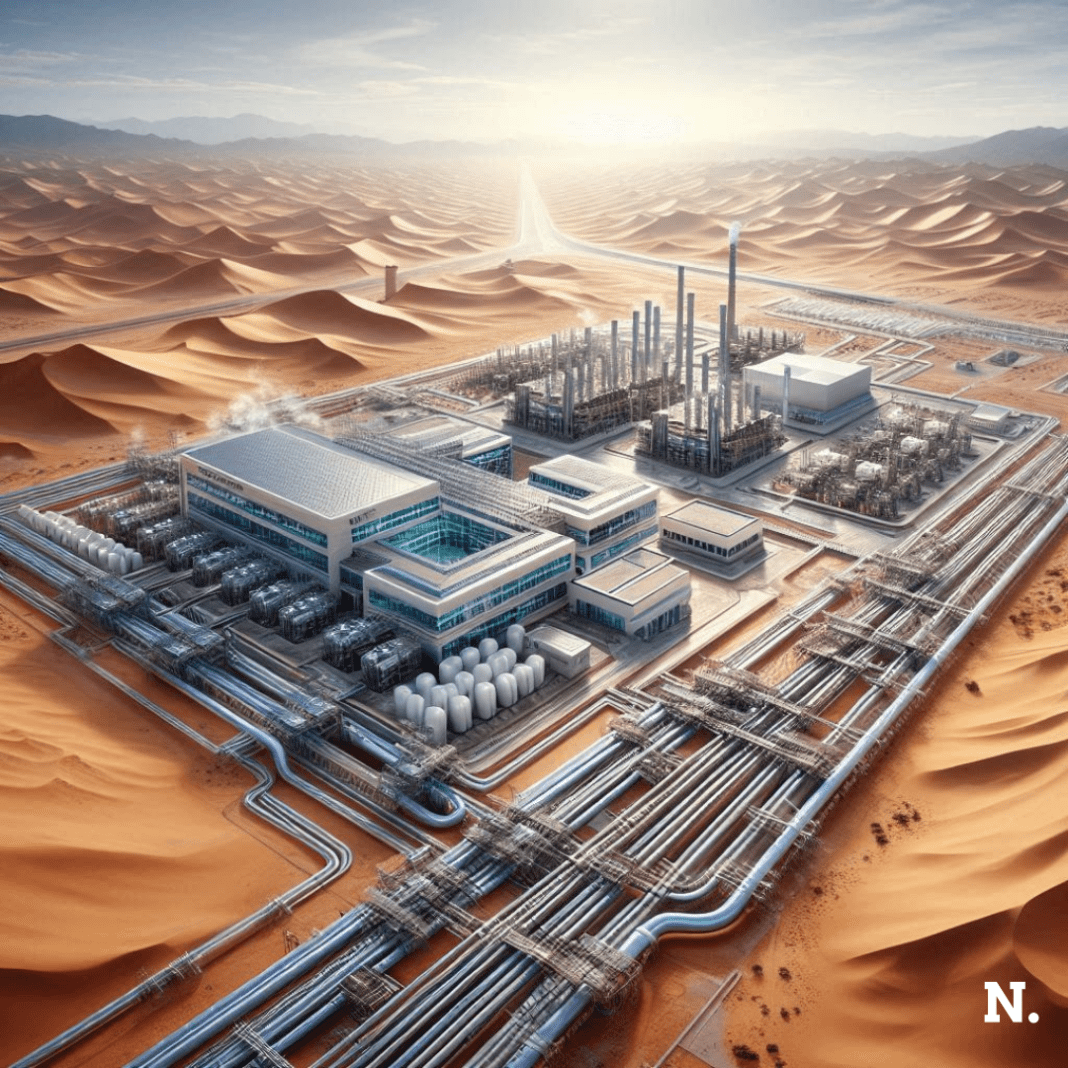The United Arab Emirates (UAE) is making headlines as it holds talks with two of the world’s biggest semiconductor companies, Taiwan Semiconductor Manufacturing Co. (TSMC) and Samsung Electronics. Both tech giants are exploring the possibility of establishing massive chip manufacturing factories in the Middle East, specifically in the UAE. This potential move could transform the region into a global hub for advanced technology and artificial intelligence (AI). However, the journey towards this vision is filled with technical and political challenges that could slow down or even halt progress.
UAE’s Vision for a Global Tech Hub
The UAE has been investing heavily in its tech industry, with the goal of positioning itself as a key player in the global technology market. Abu Dhabi, the capital of the UAE, is leading this effort through its sovereign wealth fund, Mubadala. With investments valued at around $300 billion, the country has vast financial resources to back these ambitious projects. Mubadala has partnered with major companies like Microsoft and BlackRock to invest in AI-related technologies, including the construction of AI data centers.
The semiconductor sector, however, presents a unique challenge. Building state-of-the-art chip factories, also known as “megafactories,” requires not only financial investment but also specialized infrastructure, resources, and talent. The cost of a single cutting-edge chip factory can soar to $20 billion, and projects of this scale in the UAE could surpass $100 billion. For the UAE, this investment would be a significant step toward diversifying its economy beyond oil and natural gas, industries the nation is known for.
TSMC and Samsung’s potential involvement in the UAE reflects a global push to increase semiconductor production, particularly due to the growing demand for AI chips. However, while the conversations are ongoing, no official plans have been finalized. There are still numerous hurdles to overcome, both technical and political, before any construction can begin.
Technical Challenges of Building TSMC Chip Factories in the UAE
Chip manufacturing is an intricate and highly specialized process. One of the most significant challenges is the need for large amounts of extremely clean water, which is used to rinse the silicon wafers during production. The UAE’s water supply, mainly produced through desalination, would need further purification to meet the standards required for semiconductor manufacturing. This is a significant technical challenge that could impact the feasibility of building these factories in the desert environment.
Another issue is the availability of skilled labor. The UAE does not currently have a well-established chip-making industry, which means there is a shortage of engineers and technicians with the necessary expertise to operate these advanced facilities. Staffing these factories with skilled personnel could require recruiting talent from abroad, adding another layer of complexity to the project.
These technical difficulties have not deterred the UAE, as the country is eager to overcome these obstacles to build a domestic tech industry. Mubadala’s subsidiary, MGX, has identified semiconductor manufacturing as a key pillar of its strategy. The UAE is in regular dialogue with global partners to explore opportunities in this sector. However, the sheer scale and complexity of these projects mean that discussions remain in the early stages, and there is no guarantee that they will materialize.
Political Factors Surrounding TSMC
Beyond the technical challenges, political factors also play a crucial role in the UAE’s chip ambitions. The region has become a focal point in the global technology race. This is especially true amid growing tensions between the United States and China. Both countries are vying for dominance in AI technology. They are also competing in semiconductor technology. As a result, the Middle East has become a key battleground in this struggle.
The United States, through initiatives like the 2022 Chips Act, has been encouraging companies to expand domestic chip production. The U.S. government is investing $39 billion in grants to boost chip manufacturing, with additional tax incentives. European nations are also offering incentive packages to attract semiconductor companies, with TSMC and Intel making moves in the region.
As TSMC and Samsung explore the possibility of establishing factories in the UAE, concerns have arisen. There are worries about advanced AI chips produced in the UAE. These chips could potentially be shipped to China. The UAE has strong trade ties with China. This relationship has made U.S. officials uneasy. They are concerned about China gaining access to these high-tech products. The Biden administration has already discussed with TSMC and Samsung how to protect U.S. interests. One idea they are considering is to give the U.S. government oversight over the production and export of chips from any factories built in the UAE.
The tug-of-war between the U.S. and China has added another layer of complexity to the discussions. While the UAE is eager to move forward with its tech ambitions, the political landscape could create roadblocks. The U.S. will likely continue to pressure the UAE not to collaborate with China on semiconductor projects. These concerns may delay or even prevent the construction of the factories until a resolution is reached.
The Bottomline
The discussions between TSMC, Samsung, and the UAE represent a significant step in the Gulf state’s efforts to establish itself as a global tech leader. The UAE has the financial resources and the ambition to build a domestic semiconductor industry. However, the technical challenges of water supply and labor, combined with the geopolitical tensions between the U.S. and China, could slow down or complicate these plans. For now, the talks remain in the early stages, and it will take time before any concrete decisions are made. The UAE’s journey toward becoming a chip manufacturing powerhouse is just beginning, but the road ahead is uncertain.





